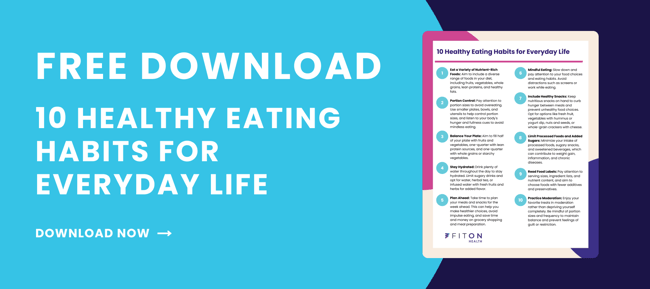Preventative care is a cornerstone of maintaining good health and well-being. By adopting a proactive approach to your health, you can catch potential issues early, improve your quality of life, and reduce the risk of chronic diseases. Building a preventive care routine doesn't have to be complicated; with a few thoughtful steps, you can create a sustainable plan that fits seamlessly into your lifestyle. Here are some tips for success in building a preventive care routine.
Free Download: 10 Preventive Care Tips for Busy Professionals
10 Tips for building a successful preventive care routine
1. Schedule regular health check-ups
Regular check-ups are crucial for monitoring your overall health and catching any potential problems early. Make it a habit to see your primary care physician at least once a year for a comprehensive check-up. Depending on your age, gender, and medical history, your doctor may recommend additional screenings such as blood pressure, cholesterol, and diabetes tests, or specific screenings for cancers like breast, cervical, or prostate cancer.
2. Adopt a balanced diet
Nutrition plays a vital role in preventive care. Aim to eat a balanced diet rich in fruits, vegetables, whole grains, lean proteins, and healthy fats. Avoid processed foods, excessive sugar, and saturated fats. Consider consulting a registered dietitian to create a personalized eating plan that meets your nutritional needs and supports your overall health goals.
3. Stay physically active
Regular physical activity is essential for maintaining good health. Aim for at least 150 minutes of moderate-intensity exercise or 75 minutes of vigorous-intensity exercise each week. Activities like walking, jogging, swimming, and cycling are excellent options. Additionally, incorporate strength training exercises at least twice a week to build muscle and improve bone health.
4. Get enough sleep
Quality sleep is a critical component of preventive care. Aim for 7-9 hours of sleep each night to support overall health and well-being. Create a relaxing bedtime routine, maintain a consistent sleep schedule, and make your sleep environment comfortable and conducive to rest. Avoid screens and stimulating activities before bedtime to improve sleep quality.
5. Manage stress
Chronic stress can have a detrimental impact on your health. Practice stress management techniques such as mindfulness, meditation, deep breathing exercises, or yoga. Make time for hobbies and activities that bring you joy and relaxation. If you're struggling with stress, consider seeking support from a mental health professional.
6. Stay hydrated
Proper hydration is essential for overall health. Aim to drink at least eight 8-ounce glasses of water each day, more if you're physically active or live in a hot climate. Carry a water bottle with you to ensure you stay hydrated throughout the day.
7. Avoid harmful behaviors
Avoid smoking and limit alcohol consumption to maintain good health. Smoking is a major risk factor for many chronic diseases, including heart disease, stroke, and cancer. Limit alcohol intake to moderate levels.
8. Take regular breaks
Give yourself short breaks during work to rest your eyes and stretch your body. These breaks can boost productivity and reduce stress. Additionally, taking the time to stretch your body can reduce the risk of musculoskeletal problems, improve circulation, and alleviate tension. Incorporating short, frequent breaks into your work routine can lead to a more productive, healthier, and more balanced workday.
9. Practice good hygiene
Good hygiene practices can prevent the spread of infections and illnesses. Wash your hands frequently with soap and water, especially before eating and after using the restroom. Keep your living environment clean and disinfect frequently-touched surfaces regularly.
10. Build a support system
Having a strong support system can make a significant difference in your health journey. Surround yourself with friends, family, and healthcare professionals who encourage and support your preventive care efforts. Join support groups or health communities that align with your health goals.
Read More: 6 Key Benefits of Preventive Care
Embracing a preventive care lifestyle
Adopting a preventive care lifestyle is a proactive and empowering approach to maintaining your health and well-being. By prioritizing regular health check-ups, balanced nutrition, physical activity, and other preventive measures, you take charge of your health and set the foundation for a healthier future. Implementing these tips into your daily routine not only helps you catch potential health issues early but also promotes long-term wellness and reduces the risk of chronic diseases. Start integrating these preventive care practices today, and make a conscious effort to nurture your body and mind.
Learn how FitOn Health can offer your people multiple options to address specific needs. Schedule a demo today!



